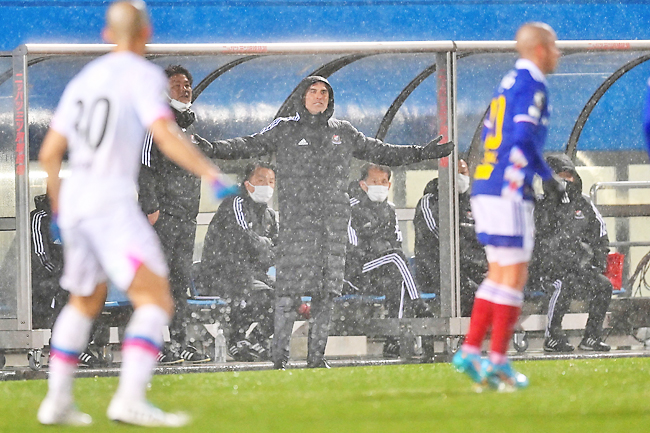TOKYO (AFP) – Kevin Muscat was branded “the most hated man in football” by an opponent during his playing days but the Australian hopes perceptions are changing after making his mark as a coach.
England-born Muscat had a successful playing career as a tough-tackling defender with the likes of Wolves, Millwall and Crystal Palace, and won 46 caps for Australia.
But he was also involved in a series of controversial on-field incidents and was sent off 12 times.
In 2001, France coach Roger Lemerre described a crunching Muscat tackle that injured forward Christophe Dugarry as an “act of brutality”.
Now 48 and manager of a Yokohama F Marinos side playing attacking football in Japan’s J-League, Muscat told AFP he is keen to “be judged separately” and said “the perception is maybe starting to change in people”.
“I want to be involved in teams that play a certain brand of football and that maybe contradicts what most people perceive to my playing days,” said Muscat.
“I’m trying to forge my own way in terms of the way I coach, the way I manage and the way my teams play.
“That’s really all I can do.”

AUSSIES CAN DO IT IN EUROPE
Muscat began his managerial career at Melbourne Victory and following a stint in Belgium took over at 2019 J-League champions Yokohama last summer after fellow Australian Ange Postecoglou left to join Scottish giants Celtic.
Muscat took Yokohama to a runner-up finish last season ahead of Andres Iniesta’s Vissel Kobe and after seven games this term they are second again, having stuck four goals past champions Kawasaki Frontale and winning plaudits for their fluid attacking football.
But more than changing impressions about himself, Muscat also hopes the same can be said about Australian coaches and he wants to see more of his countrymen given the chance to manage overseas.
After a slow start in Scotland, Postecoglou has propelled Celtic above fierce Glasgow rivals Rangers – where Muscat had a spell as a player – and taken the Bhoys to a League Cup title.
“It’s not doing any harm that Ange is at the forefront of people’s minds now and hopefully that transcends,” said Muscat.
“It’s been highlighted because of the nature and the size of Celtic, but hopefully, over a period of time, more Australians get opportunities not only in Europe but also in Asia.”
TORN EMOTIONS
Tomorrow, Muscat’s two worlds collide when Australia play Japan in a crucial World Cup qualifier in Sydney. He admits that he is “a little bit torn”.
The Socceroos badly need a win if they are to secure one of the group’s two automatic qualification spots for Qatar and avoid a potentially hazardous playoff against a South
American side.
In his days as a player Muscat was part of an Australia team that lost to Uruguay with a place at the 2002 World Cup up for grabs.
He believes the playoffs will not “faze” the Socceroos if it comes to that.
“Without doubt it’s not going to be easy, but qualifying for the World Cup shouldn’t be easy,” he said.
“I’m pretty sure that the belief in the squad will still be really positive, but it seems that performances have drained a little bit of confidence from the team.”
Muscat has been mentioned as a potential future Australia manager, having led Melbourne to two A-League championship titles.
But he is enjoying the “good challenges” of managing in the J-League and believes the change in environment “adds more to your armoury in the way you coach”.
“I haven’t found it difficult because I look upon these things as a challenge,” he said of working “90 per cent through translators”.
“What gets removed is the one-on-one emotion side of things with the players, but I’m working with a very good translator and I’m able to transfer as much of the emotion in the conversation as possible.”








